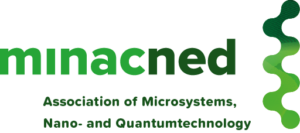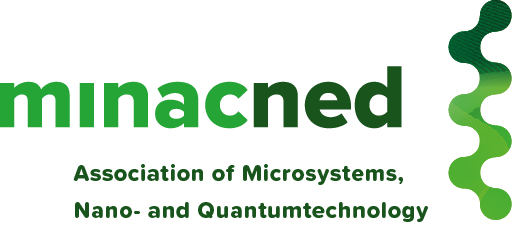In July 2020, NWO will start seven programmes that fall within the Knowledge and Innovation Covenant 2020-2023. It concerns a range of subjects for which public and private parties will work together in an interdisciplinary manner with researchers on innovative solutions or societal problems, such as the energy transition, dementia and water management.
The mission-driven calls that will be published in July are one of the types of funding within the KIC. In addition to these calls, Partnerships, strategic collaboration forms and practice-oriented funding instruments will start in the autumn. NWO asks researchers and partners to get ready for these calls. Therefore please follow the developments via nwo.nl/en/kic, @NWOnieuws and LinkedIn!
Mission-driven research programmes
NWO will develop a limited number of large thematic calls throughout the year with a size of between 5 and 15 million euros, the so-called mission-driven programmes. The choice of subject has been determined on the basis of prioritised subjects (missions) taken from the Knowledge and Innovation Agendas (KIAs) published by the top sectors. Researchers can submit proposals for collaborative projects, with a budget of 750,000 to 4 million euros per proposal. For each call, a co-funding percentage will be set.
in July, NWO will start with the following programmes within the Knowledge and Innovation Covenant:
Key technologies
Key technologies is an umbrella term for technologies of the “future”. They cast to one side ideas about what was considered possible and have the potential to result in groundbreaking innovations. For example, artificial intelligence will change the way we work, and we will treat patients in new ways with nanomedicines. The call “Key Technologies” encourages:
1. the development of scientifically excellent knowledge that results in relevant new technology for industry and society via a multidisciplinary approach;
2. the building up of intensive and sustainable collaborative relationships within consortia between knowledge institutions, companies and civil society organisations;
3. the creation of more focus on mass (coherency) in research into thematic areas and key technologies that are relevant for the Netherlands so that strong internationally distinct positions can be created in the industry and knowledge infrastructure of the Netherlands; and
4. facilitating the valorisation of the developed knowledge by (end) users.
Opening call for proposals: July 2020
Intended deadline pre-proposals: not earlier than January 2021
Contribution NWO: 11 million euros
Project size (including co-funding): 750,000 euros – 2.5 million euros
Circularity for wind and sun
This programme is about more energy revenues due to lower costs of wind and solar energy. Possible ideas are research into new (circular) materials, innovative equipment, processes and designs for production installations. The themes efficiency and circularity are the focus of this call.
Opening call for proposals: July 2020
Deadline pre-proposals: not earlier than January 2021
Contribution NWO: 5 million euros
Project size (including co-funding): 750,000 – 1.5 million euros
Circularity
Innovation plays an important role in achieving the National Climate Agreement of the Netherlands because not all other solutions that are necessary for achieving the goals are available. Two important sectors in this regard are industry and agri-food. This programme will encourage interdisciplinary research to stimulate the transition to a circular carbon system. This covers the entire value chain: raw materials, production, the (re)use of semi-manufactured products, products and carbon in the waste phase. The participation of citizens and companies is vital for the success of the transition. Here the challenge lies in integrating societal and technical-scientific innovations across the entire chain.
Opening call for proposals: July 2020
Deadline pre-proposals: not earlier than January 2021
Contribution NWO: 5 million euros
Project size (including co-funding): 750,000 – 1.5 million euros
Aquatic food production
In the coming years, a large proportion of the Dutch North Sea will change in terms of use and allocation. At the same time, the demand for sustainably produced food, especially protein, and biogenic raw materials will increase. This requires the linking of biological, maritime, economic and societal issues with respect to the development of knowledge about sustainable mariculture and agriculture in the North Sea and estuaries. For this, the focus is on a sustainable approach for the cultivation and the breeding of seaweed, crustaceans and shellfish, and the development of cultivation and processing facilities with attention for the ecosystem, biodiversity and multifunctional use of water. With this call, NWO will finance research projects that tackle these challenges in an interdisciplinary manner. Where possible, connection will be sought with existing initiatives.
Opening call for proposals: July 2020
Deadline pre-proposals: not earlier than January 2021
Contribution NWO: 5 million euros
Project size (including co-funding): 1 – 1.5 million euros
Climate-robust production systems and water management
As a result of climate change, the Netherlands is increasingly confronted with long periods of drought and with periods of a lot of precipitation in a short space of time. This has major consequences for agriculture and horticulture. The effects and possibilities for solutions are dependent on the local soil and water system and can therefore strongly differ per region. The Netherlands faces the challenge of developing climate-robust, agricultural and horticultural production systems in conjunction with (innovations in) the water system management. For this, the societal aspects of intended innovations will need to be taken into account as well.
With this call, NWO will fund research projects that tackle these issues in an interdisciplinary manner.
Opening call for proposals: July 2020
Deadline: not earlier than January 2021
Contribution NWO: 6 million euros
Project size (including co-funding): 1 – 1.5 million euros
Lifestyle and living environment
The aim of the call is to initiate research that structurally improves equal opportunities to be able to live in good health. The call focuses on the (further) development and application of sustainable, innovative, preventative interventions aimed at both lifestyle and the living environment. These successful innovations are based on previously acquired results and will be further strengthened within this call by the use of artificial intelligence (AI) and learning communities. The outcomes will contribute to the aim that by 2040 disease burden as a consequence of an unhealthy lifestyle and living environment will have been reduced by 30% compared to 2020.
Opening call for proposals: July 2020
Deadline: not earlier than January 2021
Contribution NWO: 5.75 million euros
Project size (including co-funding): 3.3– 3.39 million euros
Living with dementia
This call makes a contribution to the mission objective that in 2030 the quality of life for people with dementia has increased by 25%. It concerns research that mainly focuses on: mechanism(s) of initiation; prevention of dementia and the associated consequences; curing dementia; increasing and/or maintaining the quality of life experienced by people with dementia and their informal carers; and strengthening the contribution to this by the formal healthcare system whether or not this involves the help of technology.
In the call, the focus will be on two interdisciplinary research lines in which for both lines connection will be sought with the key technology artificial intelligence (AI):
1. mechanistic research, resulting in high-quality diagnostics, prognostics and interventions;
2. research into the psychosocial interventions focusses on personalised self-management, joint management and usable technology for people with dementia and their (in)formal care providers.
Opening call for proposals: July 2020
Deadline: not earlier than January 2021
Contribution NWO: 5.25 million euros
Project size (including co-funding): 2.9 million euros – 3.09 million euros (one project per research line)
Other funding instruments
Mission-driven calls
The following mission-driven calls are planned for the autumn of 2020:
• Security
• Public earning capacity
• Human Capital
• Societal expectation, embedding and social innovation
Partnerships
For Partnerships, a Partnership desk has been opened to discuss the possibilities.
Read more about Partnerships here.
Long-Term Programmes (LTPs)
For Long-Term Programmes (LTPs) with a maximum duration of ten years, a call for proposals (pre-proposals) is expected in September 2020.
Read more about the LTPs here.
Therefore please follow the developments via nwo.nl/en/kic, @NWOnieuws and LinkedIn!
Research brings solutions a step closer
Climate change, cyber security, the ageing population: our society faces several major challenges. These challenges require groundbreaking innovative solutions with impact. This provides economic opportunities for public and private parties to jointly develop innovative solutions for societal issues. The contribution of scientific and practice-oriented research is indispensable in this regard. The aim is to achieve not just societal impact but also economic and scientific impact.
For this, NWO will deploy programmes of considerable size so that a real difference can be made. To realise the challenges set, NWO will initiate collaborations, make connections between researchers, private parties and public parties, and encourage the exploration of new pathways. Bringing different parties together will give rise to new consortia and innovative research. In the vision of NWO, the opportunities arising from the intended changes and the impact these have will be maximised if interdisciplinary research is realised in which collaboration is sought with relevant knowledge institutions and public and private partners, including SMEs. Partners make a substantial contribution to the research financially (in cash) and by providing support (in kind).
NWO and KIC
Each year, NWO will make more than 100 million euros available for fundamental and practice-oriented research that is realised by scientists in collaboration with companies. The financial contribution of NWO is established in the Knowledge and Innovation Covenant (KIC) 2020-2023, in which knowledge institutions, industry, government bodies and other public parties jointly invest in innovation. This funding is aligned with the mission-driven top sectors and innovation policy of the Dutch government.


